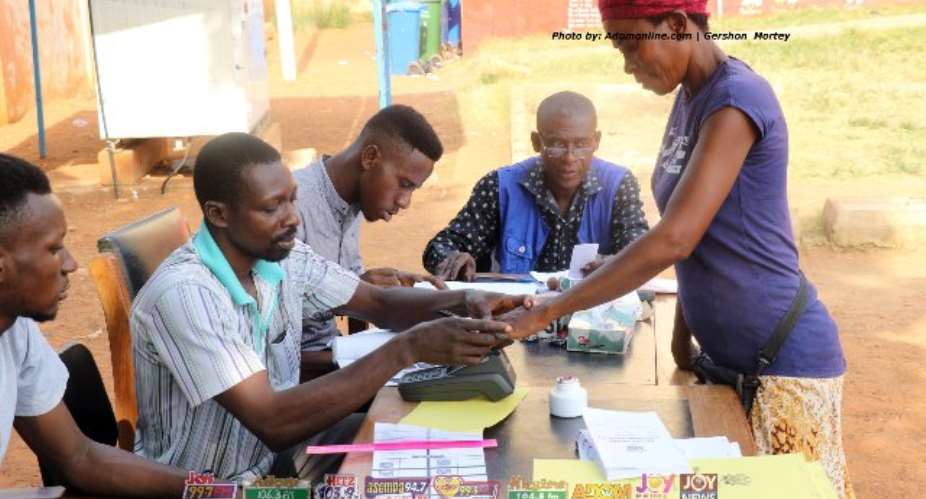The policy of “no verification no vote” as a means of biometric identification of eligible voters will be enforced in the 2020 general elections, Director of Electoral Services at the Electoral Commission, Dr. Serebuor Quaicoe has disclosed.
The policy, which was introduced in the 2012 Presidential and Parliamentary elections, he explained, will be a process by which fingers and faces of voters will be biologically verified by a biometric machine to obtain their true identity before they cast their ballots.
This, he explained further, will be made possible if the EC is allowed to compile a new voters register and include the facial recognition features.
“‘No Verification, No Vote’ as a policy ahead of the 2016 elections, failed as several verification devices at many polling stations failed to verify voters whose names were in the register.
To solve the problem, the EC in consultation with the Inter-Party Advisory Committee (IPAC), agreed that manual verification of voters would be introduced for people whose particulars appear on the voter register but who might be rejected by the biometric verification devices - a proposal then opposition party, New Patriotic Party (NPP) opposed.
As the December polls approach, the elections management body finds it prudent to introduce the policy again.

Dr. Serebuor Quaicoe
Dr. Quaicoe said on Asempa FM’s Ekosii Sen programme on Friday, said that the policy will reduce the margin of error and ensure only those verified will have the opportunity to vote.
When asked by show host, Philip Osei Bonsu, if the EC would not infringe the right of citizens to vote as guaranteed by the 1992 Constitution, he said the margin of error was minimal.
“It is impossible for anyone to fail both fingerprint and facial recognition [at the same time]. The margin of error is .001,” he stated.
The EC Director of Electoral Services said the EC was working to improve upon the equipment and technology to prevent a recur of the problem that characterised the 2012 elections with the use of the biometric verification devices.
Dr. Serebuor Quaicoe said the political parties opposed to a new register will soon support their position when they see the results.
—Adomonline





 2024 election will be decided on the grounds of the economy; choice of running m...
2024 election will be decided on the grounds of the economy; choice of running m...
 Dumsor: We're demanding less; just give us a timetable — Kwesi Pratt to ECG
Dumsor: We're demanding less; just give us a timetable — Kwesi Pratt to ECG
 Do I have to apologise for doing my security work, I won’t – Simon Osei-Mensah r...
Do I have to apologise for doing my security work, I won’t – Simon Osei-Mensah r...
 Prestea and Bogoso mines: Complete payment of outstanding salaries not later tha...
Prestea and Bogoso mines: Complete payment of outstanding salaries not later tha...
 NDC postpones Prof. Opoku-Agyemang entry tour to May
NDC postpones Prof. Opoku-Agyemang entry tour to May
 All my businesses have collapsed under Akufo-Addo — NDC Central regional chair
All my businesses have collapsed under Akufo-Addo — NDC Central regional chair
 Military, Prison Officers clash in Bawku, three injured
Military, Prison Officers clash in Bawku, three injured
 GRA-SML contract: MFWA files RTI request demanding KPMG report
GRA-SML contract: MFWA files RTI request demanding KPMG report
 Court threatens to call second accused to testify if NDC's Ofosu Ampofo fails to...
Court threatens to call second accused to testify if NDC's Ofosu Ampofo fails to...
 Family accuses hospital of medical negligence, extortion in death of 17-year-old...
Family accuses hospital of medical negligence, extortion in death of 17-year-old...
